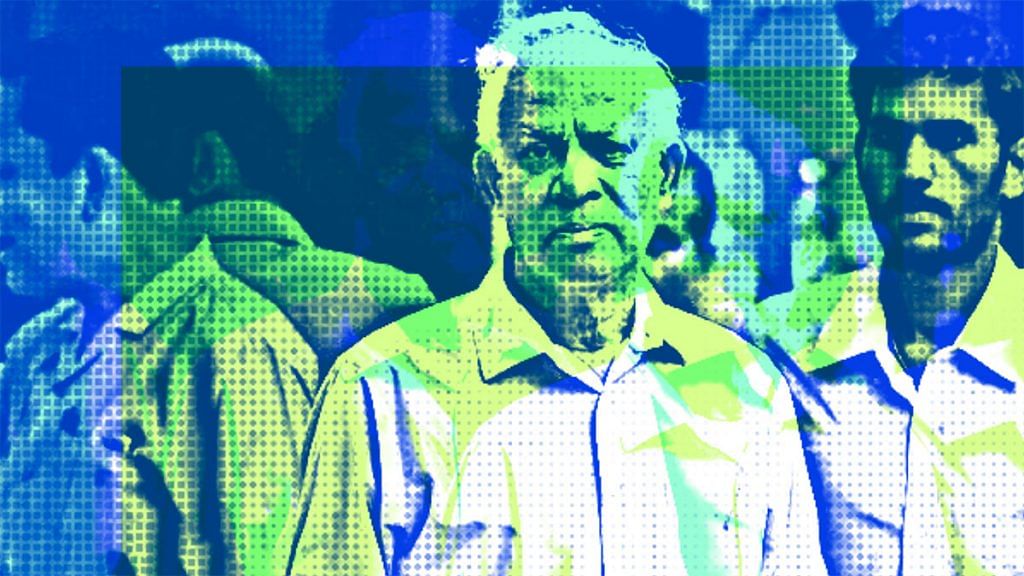Government servants have lashed out at the conviction of IAS officer H.C. Gupta and two others under Section 13(1)(d)(iii) of the Prevention of Corruption Act.
New Delhi: An old resentment resurfaced for government employees last week when three IAS officers were convicted in a coal scam case under a legal provision that had recently been quashed.
The Prevention of Corruption Act 1988, was amended earlier this year to repeal a part of Section 13, which deals with criminal misconduct by a public servant.
Section 13(1)(d)(iii) was among the provisions invoked by the CBI against former coal secretary H.C. Gupta and five others, including two IAS officers, over irregularities in the allocation of two coal blocks during the UPA’s tenure (The chargesheet was framed long before the amendment was made).
The provision states that a public servant is said to commit criminal misconduct if he, while holding office as a public servant, obtains for any person any valuable thing or pecuniary advantage without any public interest.
The loosely-worded provision, with no universally agreed upon definition of “public interest”, sought to implicate officers even when there is no mens rea, or knowledge of wrongdoing. Simply the fact that a wrongdoing was committed was enough to implicate an officer.
Also read: Coal scam convict HC Gupta’s son wants to be an ‘upright’ IAS officer just like his father
‘Wholehearted welcome’
While critics had termed the amendment a bid to dilute the law, government officers had celebrated it, saying it would enable them to take bold decisions without the fear of false implication.
“We wholeheartedly welcome the move because, at least, now malicious intent of the officer has to be proved,” IAS Association president Rakesh Srivastava had told ThePrint weeks after the amendment was brought.
“In addition, innocent officers will not be punished simply if pecuniary loss is incurred by the government because of a wrong decision taken inadvertently,” he had said.
Predictably, in light of IAS officers Gupta, K.S. Kropha and K.C. Samria’s conviction under the “draconian” provision, several IAS officers lashed out on social media.
Nothing could be as shocking as this. Even in the absence of any malafide, an honest officer has been hauled up. The law was subsequently amended to prevent such "injustice" but Mr Gupta has been help guilty under the original law. https://t.co/xuBVZE7BSK
— Anil Swarup (@swarup58) December 1, 2018
Conviction of honest IAS officers in Coal Scam is most unfortunate. A black letter day for bureaucracy – Convicting officers for bona fide decisions in the interest of administration. We stand by the officers in this time of distress. #HCGupta
— IAS Association (@IASassociation) December 1, 2018
Highly distressing that a license-raj era act is used to convict one of the finest seniors. If it is not the quid pro quo but that the decision ended up favouring someone is the yardstick many of us who take decisions can be sent to jail already. Why wait till retirement #HCGupta
— Kannan Gopinathan (@naukarshah) December 1, 2018
“This law held officers accountable even for procedural lapses…” IAS Association secretary Abhishek Chandra told ThePrint.
“In a day, as officers, we receive some 50-60 files,” he added. “If we sit down to establish the veracity of everything that is written in every file, nobody will take a decision.”
“I’d rather be happy with red-tapism if this is the fate honest officers will have,” Chandra said.
“If an officer is caught taking a bribe or caught in a case of corruption, of course, he must be tried, and even thrown into jail if required,” he added. “But to deem an officer a criminal simply because someone is of the view that something could have been done better, is absurd.
“It’s like people keep being convicted under TADA long after it is gone,” he said.
Chandra was referring to the Terrorist and Disruptive Activities (Prevention) Act, which the government allowed to lapse in 1995 in light of allegations that it facilitated human rights abuse.
Also read: H.C. Gupta’s conviction in coal scam case will force IAS officers to play safe
‘A necessary provision’
However, senior advocate Prashant Bhushan, who has challenged the amendments on the ground that they have rendered the Act ineffective and expanded the scope of corruption, said Section 13(1)(d)(iii) was necessary.
“Section 13(1)(d)(iii) was introduced because direct evidence of bribery is not always possible,” he said.
“Moreover, bribery may not always be the reason why a wrongdoing is committed,” he said. “The officer can be given the incentive of a good posting, promotion, etc.
“In H.C. Gupta’s case, he knew the allotments are being leased out to companies that are ineligible, so he obviously abused his power,” he added.
However, Chandra refuted the argument and questioned why the higher-ups had been let off and only three officers were being “hounded”.
“A secretary does not even have the sanctioning authority to take decisions on financial matters over a sum of Rs 500 crore,” he said. “The Cabinet is the highest authority… these three officers are not even in a position to make the decision without their consent.”
